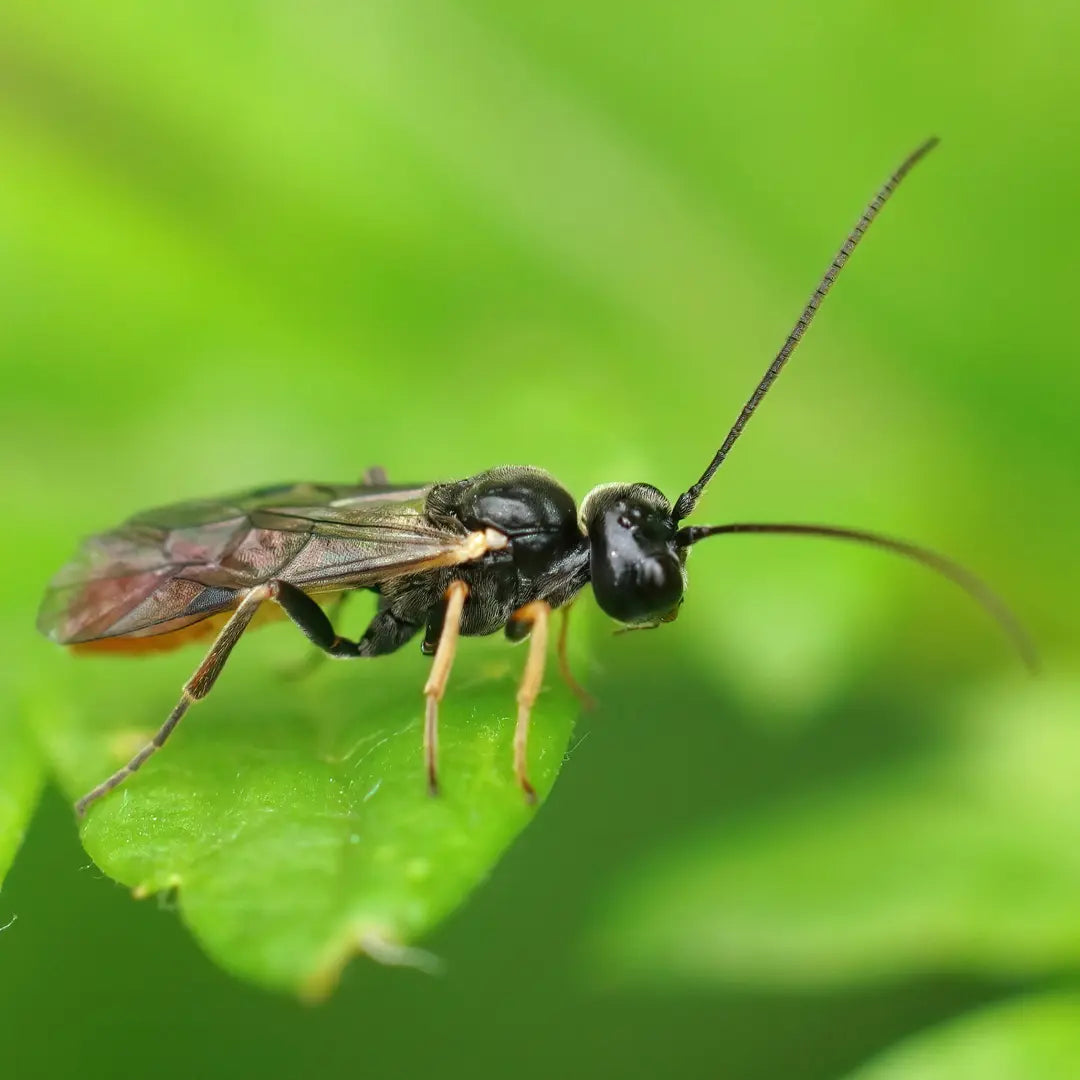
Parasitic Wasps
As the popularity of chilli plants has taken root in gardens throughout New Zealand, so too has the need for organic pest control. That's where parasitic wasps enter the scene. These tiny, extraordinary insects are both natural enemies to pests and best friends to chilli plants. In this comprehensive guide, we'll delve into the amazing world of these little warriors, exploring their fascinating biology and crucial role in maintaining the health of your chilli plants.
What is a Parasitic Wasp?
Parasitic wasps are a diverse group of insects belonging to the order Hymenoptera, which also includes ants and bees. While their name may conjure images of terrifying, bloodthirsty creatures, these wasps are in fact beneficial insects that prey on a variety of pests. Armed with an ovipositor – a needle-like organ used for laying eggs – female parasitic wasps lay their eggs in or on host insects. As the eggs hatch, the larvae feed on their hosts, eventually killing them and thus preventing further damage to your precious chilli plants.
Collapsible content
Identification
With over 200,000 known species worldwide, identifying parasitic wasps can be a challenge. However, there are some common features to look for. Most parasitic wasps are small, ranging in size from 1 to 20 millimetres. They have narrow waists, elongated bodies, and transparent wings. Many species have distinctive markings or colouration, such as the metallic sheen of some chalcid wasps.
When it comes to chilli plants, one of the most common and helpful parasitic wasps is the Trichogramma wasp. This tiny, almost microscopic wasp is a formidable ally, targeting pests such as aphids, caterpillars, and whiteflies that feast on your precious chilli plants.
Benefits
Introducing parasitic wasps to your chilli plants brings a host of benefits. Firstly, they provide an organic, chemical-free solution to pest control. This means you can avoid the use of harmful pesticides that can negatively impact the environment and the health of your plants.
Secondly, parasitic wasps are a sustainable, long-term pest management solution. They reproduce quickly and, as long as there is a food source available, they will continue to help control pests in your garden.
Lastly, by keeping pest populations in check, parasitic wasps help promote healthy plant growth and increase yields. With fewer pests attacking your chilli plants, they can flourish and produce a bountiful harvest.
Where to Purchase
If you're looking to enlist the help of parasitic wasps in your garden, you can purchase them from a variety of sources. Many online gardening retailers and biological control companies offer parasitic wasps for sale, often in the form of Trichogramma wasp eggs.
When selecting a supplier, ensure they are reputable and provide clear instructions on how to release the wasps into your garden. Keep in mind that parasitic wasps are living creatures that require proper care and handling to ensure their success in your garden.
Parasitic wasps are the unsung heroes of the gardening world, providing invaluable support to your chilli plants by keeping pests at bay. By introducing these beneficial insects into your garden, you are investing in an organic, sustainable, and environmentally-friendly solution to pest control. As you marvel at your thriving chilli plants, take a moment to appreciate the unseen world of these remarkable insects – the parasitic wasps – and the crucial role they play in ensuring a bountiful harvest.
In the end, working in harmony with nature is key to cultivating a successful garden. By embracing the incredible world of parasitic wasps, you can enhance the health and productivity of your chilli plants while promoting a more balanced ecosystem. So, go ahead and welcome these winged warriors into your garden, and watch your chillies flourish under their vigilant care.



